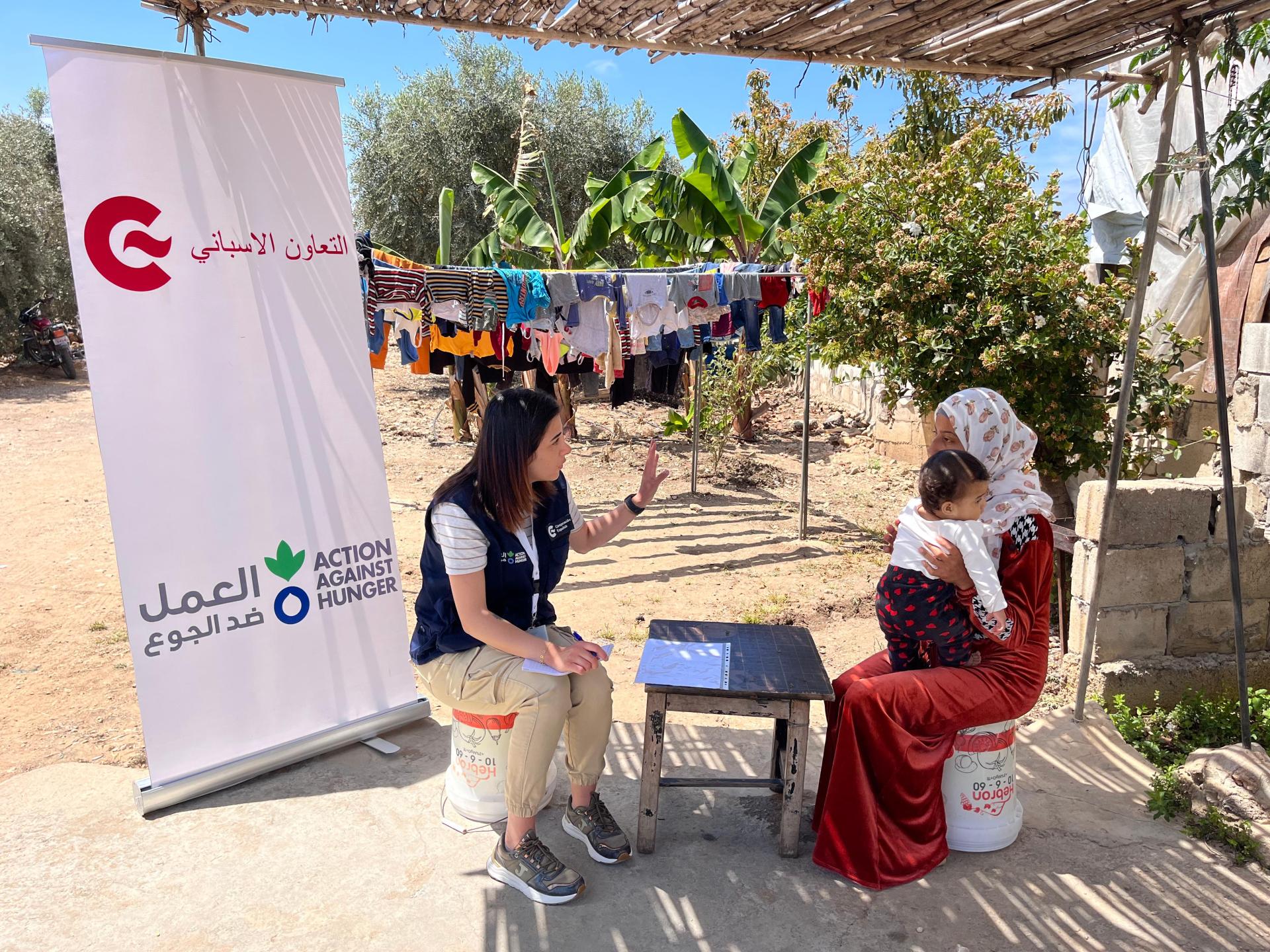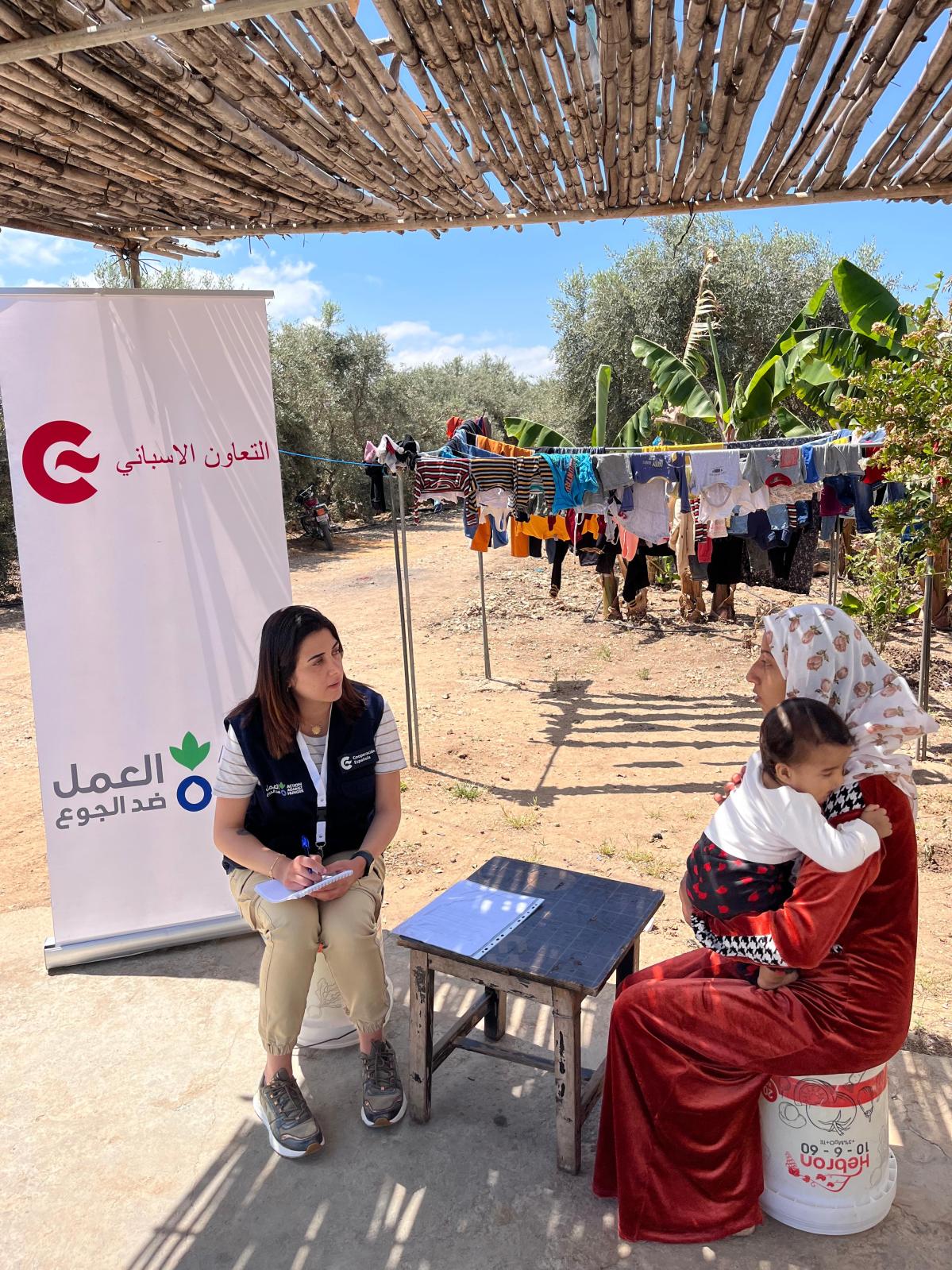

Sugar Water and Silence: A Mother’s Fight to Breastfeed in Lebanon
In the aftermath of giving birth to her first child under intense and uncertain conditions, Nour faced the emotional toll of separation from her newborn and the daunting challenge of feeding her baby during financial hardship and displacement.
Nour gave birth on August 18, 2024. Her baby girl, weighing 3.7 kg, arrived earlier than expected and with serious health complications. Suffering from a weak pulse, difficulty breathing, and lung inflammation, the infant was immediately placed in an incubator for 10 days. During this time, hospital restrictions prevented Nour from seeing her daughter until the fifth day—making breastfeeding impossible and requiring the hospital to provide formula.
By the time the baby was discharged on day 11, attempts to breastfeed were unsuccessful. The baby couldn’t latch properly, and Nour, who had never seen any signs of milk production, felt discouraged. With only an old manual pump available and no financial means to purchase more formula, she faced a heartbreaking reality.
Everything changed on September 13, when Action Against Hunger team with the financial support of the Spanish Agency for International Development Cooperation (AECID) visited the family. Our team provided some important nutrition counseling to Nour and supported her to try breastfeeding again during the visit. Following our team’s recommendations, the baby latched well, and milk began to flow—Nour saw milk for the first time. Overwhelmed with joy and relief, her hope was reignited.

At that time, Nour herself was struggling. Her Mid-Upper Arm Circumference (MUAC) measured 219 mm, indicating malnutrition, and she was immediately referred for treatment. She also received one-on-one counseling and an awareness session on breastfeeding techniques, benefits, and safe practices.
Over the following weeks, regular follow-ups supported Nour’s journey. While her milk supply was still limited on September 17, she was determined to continue breastfeeding. Financial barriers prevented her from buying formula, and at one point, she resorted to feeding the baby sugar water—an unsafe but desperate decision. The health team responded quickly, informing her of the dangers and encouraging her to use hand expression to stimulate milk production. She was provided with sterile cups and, eventually, a new manual breast pump.
By September 20, her perseverance paid off. Her milk supply increased significantly, and her baby began to show real signs of improvement. A follow-up call on September 30 brought both encouraging and difficult news: the family had been displaced by the escalating conflict in southern Lebanon. Yet, amidst the upheaval, our team followed up with Nour and she confirmed that she was still exclusively breastfeeding, and her baby’s health was improving daily.
Weeks later, on November 19, another call with Action Against Hunger confirmed a heartening milestone—Nour was still exclusively breastfeeding, and her baby’s weight was increasing steadily and that is all thanks to the project financed by the Spanish Agency for International Development Cooperation (AECID). What began as a desperate and uncertain start had transformed into a powerful story of maternal resilience, health recovery, and the life-saving impact of timely humanitarian intervention.
